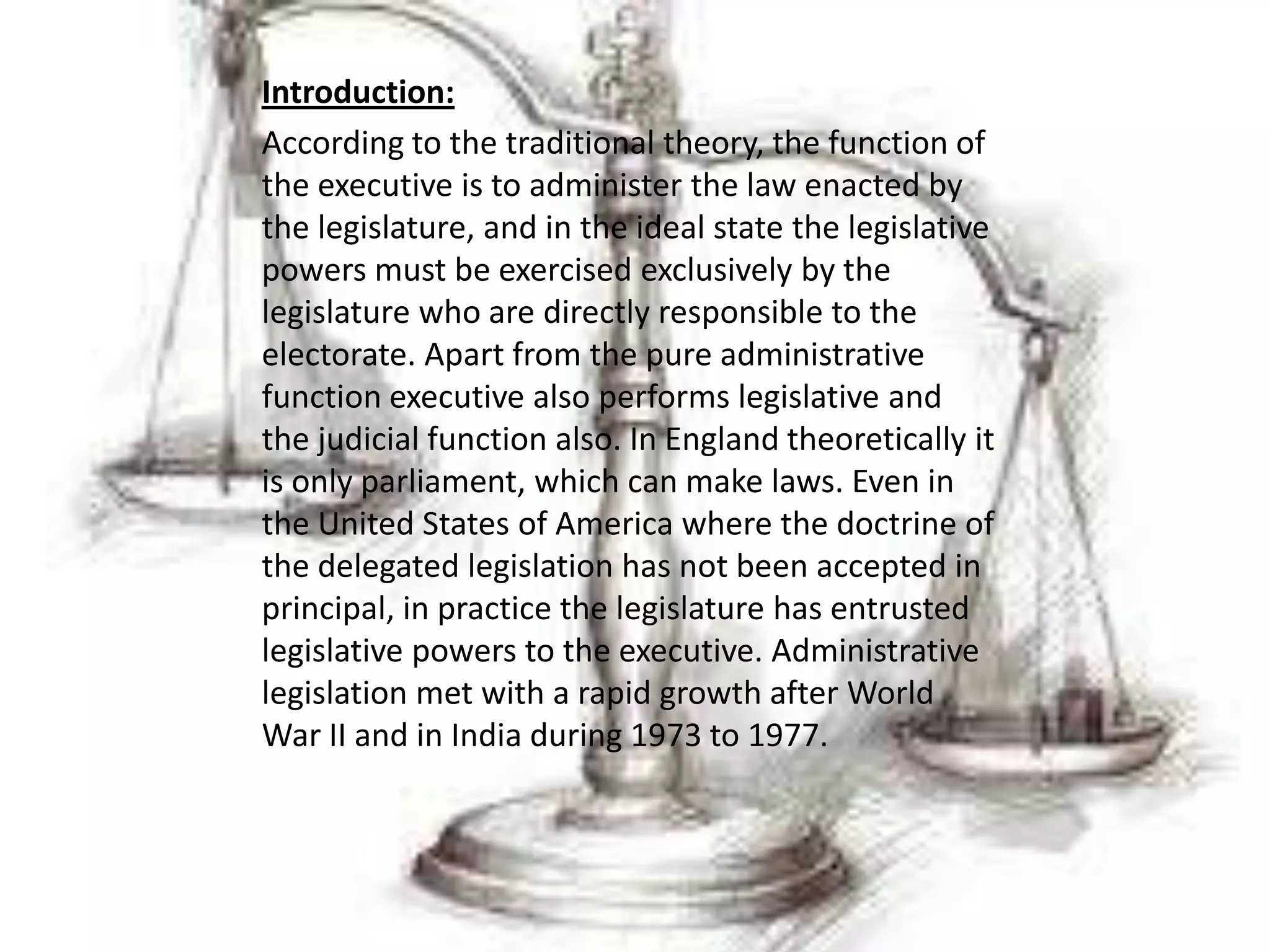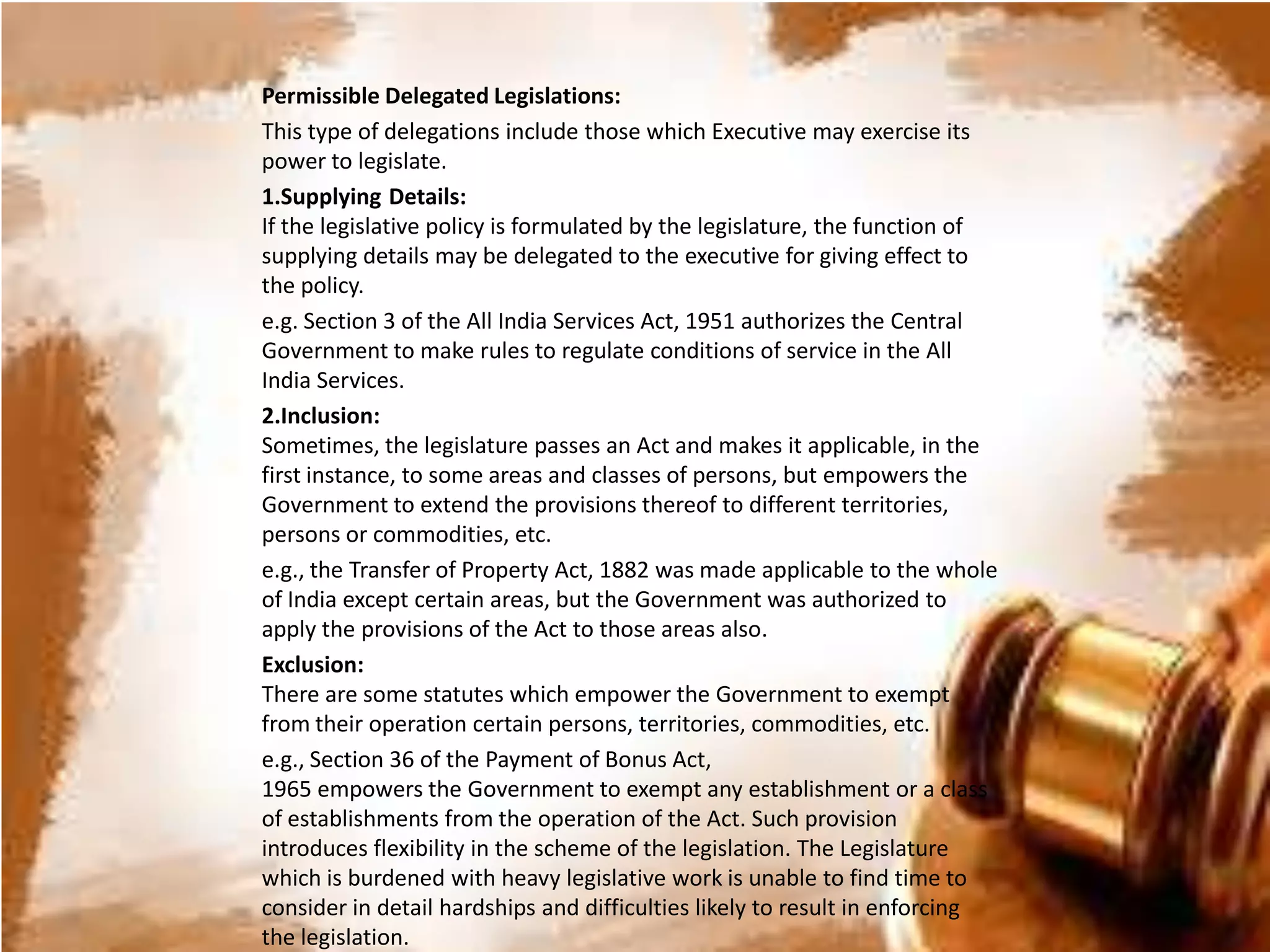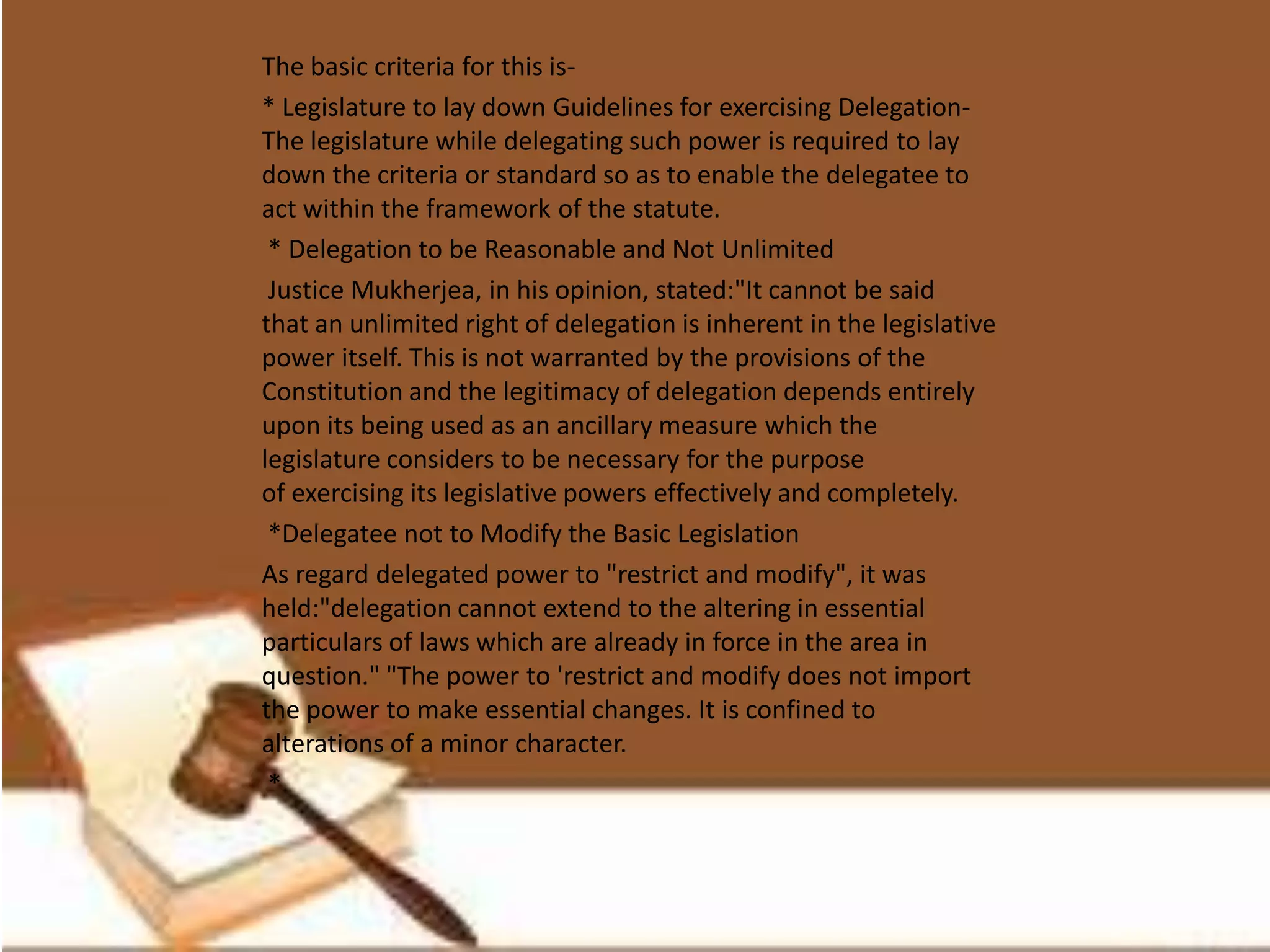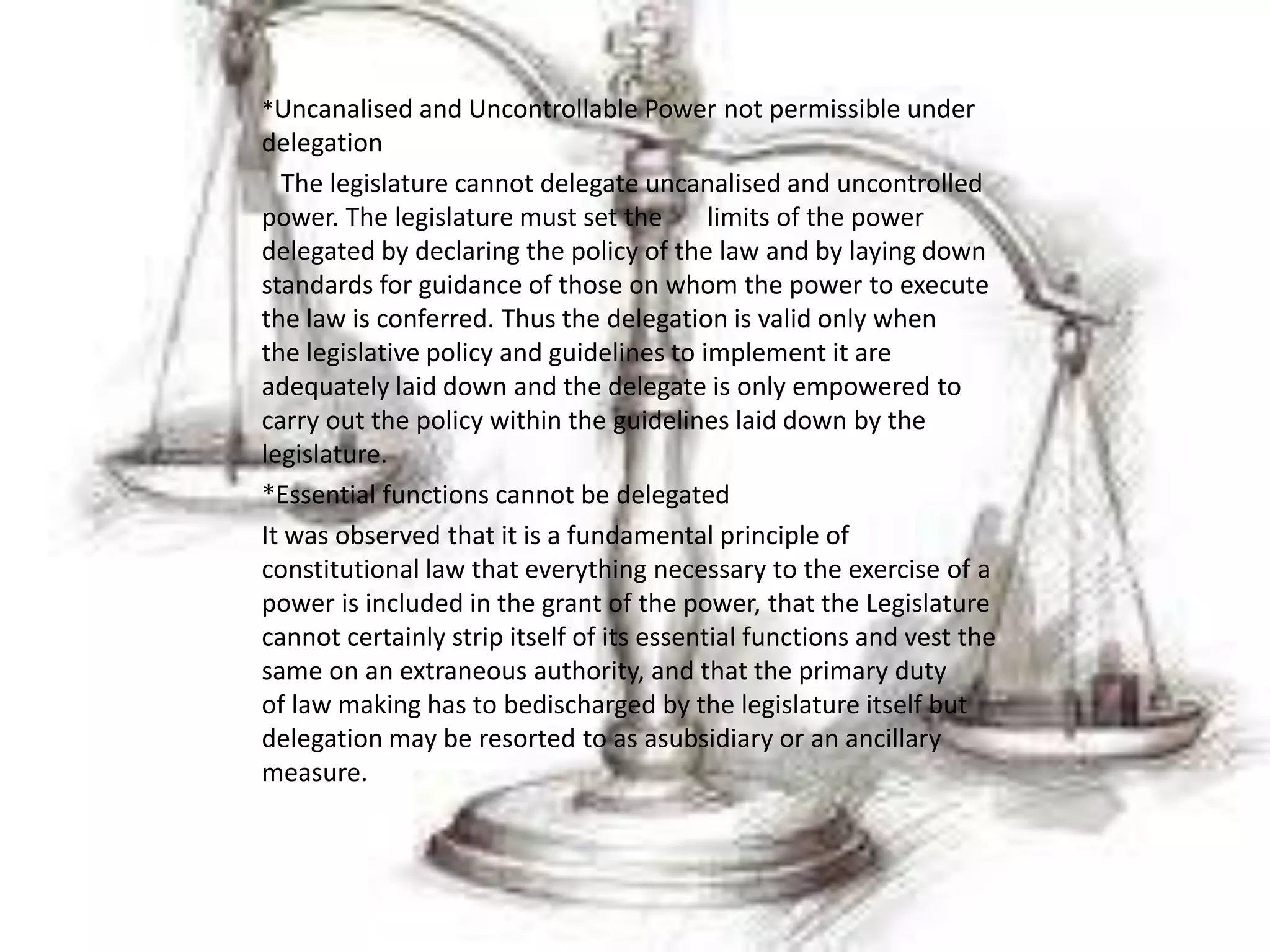The document discusses the concepts of delegated legislation, its historical evolution in India, and the distinction between permissible and impermissible forms of such legislation. It outlines how the Indian Constitution allows for delegation of legislative powers to the executive under certain conditions while emphasizing that essential legislative functions cannot be delegated. The document also highlights various examples of permissible delegation, including supplying details and modifying existing laws, while asserting that certain powers, such as the imposition of taxes and the repeal of laws, must remain with the legislature.











